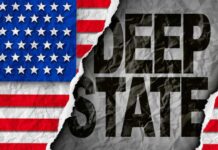
The Trump administration escalated its pressure campaign against Iran this week, issuing sweeping new sanctions just hours after a fourth round of indirect nuclear negotiations failed to produce a breakthrough.
On Tuesday, the Treasury Department announced penalties against nearly two dozen companies accused of helping Iran circumvent oil sanctions, moving billions of dollars in crude through an elaborate network of front firms and shadow fleets. At the center of the crackdown is Sepehr Energy, a firm Treasury officials say orchestrated a global money-laundering and oil-smuggling ring designed to obscure the origin of Iranian petroleum — much of which ends up in Chinese “teapot” refineries.
“These companies are part of an elaborate system of oil smuggling and money laundering,” Treasury Secretary Scott Bessent said. “So long as Iran continues to fund terrorism and build weapons of war, we’ll keep hitting them where it hurts.”
Another company, CCIC Singapore PTE. Ltd., reportedly falsified shipping documents to pass Iranian oil off as Malaysian, using ship-to-ship transfers in open waters. Treasury officials say such tactics allow Iran to evade sanctions while continuing to fund groups like Hezbollah and the Houthis.
The sanctions follow a separate action Monday targeting individuals allegedly helping Iran advance its illicit nuclear program — a sign that patience in Washington is wearing thin.
Meanwhile, Sunday marked the fourth round of talks between the Trump administration and Iran, held via Oman as mediator. While the U.S. reiterated that sanctions would not be lifted without verifiable proof that Iran had halted uranium enrichment, Tehran doubled down on its demands. Iranian Foreign Minister Abbas Araghchi insisted enrichment was “non-negotiable” and a source of “national pride.”
“Enrichment must continue,” Araghchi said, while admitting Iran might accept temporary caps like those under the failed 2015 Obama-era JCPOA deal — a framework the Trump administration has firmly rejected.
“No enrichment means dismantlement,” said U.S. Special Envoy to the Middle East Steve Witkoff. “The red line is clear. Natanz, Fordow, and Isfahan — all of it has to go. There will be no JCPOA-style deal with sunsets and loopholes.”
Secretary of State Marco Rubio echoed the hard line, stating that Iran must walk away not only from nuclear enrichment but also from long-range missiles and support for terrorist proxies like the Houthis.
State Department spokeswoman Tammy Bruce emphasized that the newly sanctioned firms were directly financing attacks against U.S. allies and forces in the Middle East. “This isn’t just about sanctions evasion — it’s about funding missiles, drones, and terrorists that are killing Americans and our friends,” she said.
While Iranian negotiators have hinted at compromise on enrichment levels and volumes, they continue to refuse any permanent dismantlement. That posture, Trump officials say, is a non-starter.
Despite harsh rhetoric, Iran showed up for Sunday’s meeting and has not ruled out further talks. But Trump’s latest moves suggest he’s preparing for a prolonged standoff.
The administration’s crackdown sends a clear signal: there will be no more cash infusions, no more diplomatic loopholes, and no more appeasement. Either Tehran walks away from the bomb — or it faces economic isolation on a scale it hasn’t seen before.










